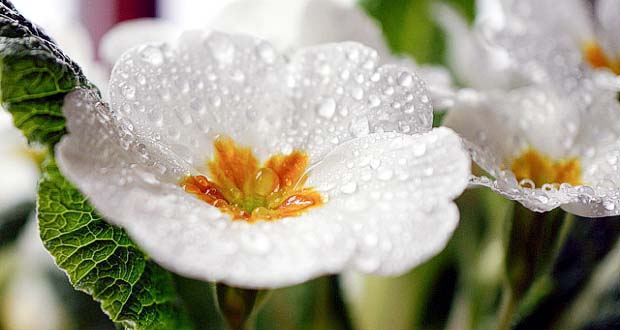When I was about five or six years old, I remember that my maternal grandmother had a beautiful garden in her backyard that she spent many hours cultivating.
Among her plants was a certain type of flower called the Evening Primrose, which is distinctive and somewhat unique insofar as, unlike most flowers that bloom once and eventually die, these little yellow flowers bloom every night.
And the fact that we could watch them bloom every twenty-four hours made for quite an event.
When my family visited her over the summers in Cleveland, Ohio, she used to call to us and let us know that these little yellow flowers were about to bloom.
So, whether we were swimming, playing Scrabble, or picking raspberries in the side yard, we would all rush out to her patio and watch the majesty of God’s creation unfold. At dusk every night, the flowers would bloom, and close every morning at sunrise.
I’ve always admired my grandmother’s ability to care for a wonderful garden, but perhaps never so much as this summer, during which I have made an effort to re-create the Evening Primrose experience that is so memorable to me.
I have grown to appreciate her efforts, because—as every spring reminds me—gardening is hard work.
A good way to start the landscaping project is by cutting back the dead plants and shrubs in the yard. However, when you get rid of these, you can only admire your work for a matter of minutes before you realize that tiny insects, who once called these dead plants “home” have just been re-located, and they’re not happy about it.
So, looking for new real estate, spiders and other critters find a way into your house. But once you eliminate the larger brush, you can now concern yourself with a more pressing concern: weeds.
Ah, the weeds. I have dirt patches in my yard that refuse to grow grass, even though I have used grass seed and fertilizer in order to repair them.
On the other hand, there are also spots in my yard in which weeds stubbornly burst forth from the earth, like bad, uninvited guests who won’t leave. You can weed-wack them; you can spray them with weed killer, but their friends will come back, sometimes, as Obi-Wan might say, “more powerful than before.”
To stop these new weeds, you can lay down mulch, which is supposed to keep the weeds from coming back. It’s a great idea, only when you go to the store to buy mulch, you might be thinking that five or ten big bags of mulch might be enough to do the trick.
When you begin to pour out the mulch bags, you realize why the guy behind the counter was smirking when you bought only five bags. No one needs five bags of mulch. You need fifty bags, at least. Of course, weeds tend to come up through the mulch anyway, so you spray weed killer again.
This whole process reminded me of a story.
A man once observed St. Francis of Assisi working in his garden, and so he asked him: “Brother Francis, if you knew you were going to die tomorrow, what would you do today?”
Famously, St. Francis responded: “I would keep tending my garden.” It’s a great line, illustrating a Catholic sense of duty along with a proper response to the Providence of God, but it’s a shame that the story ends there.
I would like to imagine that the man asked St. Francis a simple follow-up question: “Why?” To which St. Francis might answer: “It’s because of the weeds!”
With all the work I’ve been doing in my yard, sometime during this spring and summer season, it has become clear to me that gardening is a lot like the spiritual life.
I’m sure I’m not the first one to form a simile between the spiritual life and gardening (St. Francis probably noticed it, too), but maybe I’m the latest in a long line of people to experience this fact.
You would like to see beautiful flowers bloom all around you, but you can’t even plant them before you rid yourself of the brush, shrubs, and weeds that threaten to take over your garden. Getting rid of these is kind of like going to Confession.
And beautiful roses don’t just appear (gifts from the Mother of God notwithstanding). They have to be cultivated, nourished, and protected. That’s akin to a good prayer life. In the homeschooling family, we fathers are gardeners of sorts. We work to mend our own spiritual lives while we help our children tend and nourish their own.
We’d love to do a perfect job, but just when we seem to conquer one sin, another appears.
And then it happens again.
At times, looking at the work in front of us, it seems a little overwhelming. But we persevere, because we can have hope that in the corner of the little gardens of our souls, and the souls of our children, there are tiny flowers that bloom every day and adorn a path to Heaven, as a testimony to the grace of God.
Care to share your simile between the spiritual life and gardening?
Header Image CC Elisafox22

 Seton Magazine Catholic Homeschool Articles, Advice & Resources
Seton Magazine Catholic Homeschool Articles, Advice & Resources
